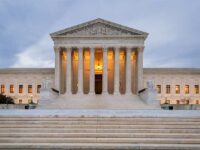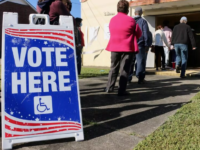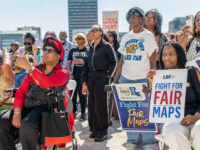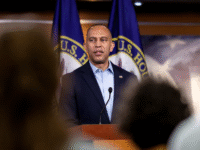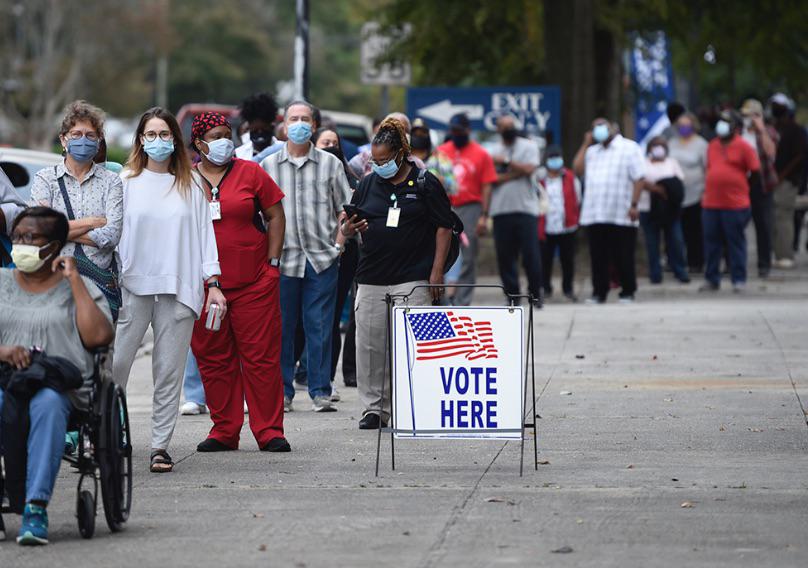In a significant rebuke to Governor Jeff Landry’s administration and the entrenched corporate interests that often dominate Louisiana politics, voters soundly rejected all four constitutional amendments proposed in the March 29 election. The results were a clear rejection of far-right policy agendas designed primarily to benefit special interests and political elites at the expense of working Louisianans.
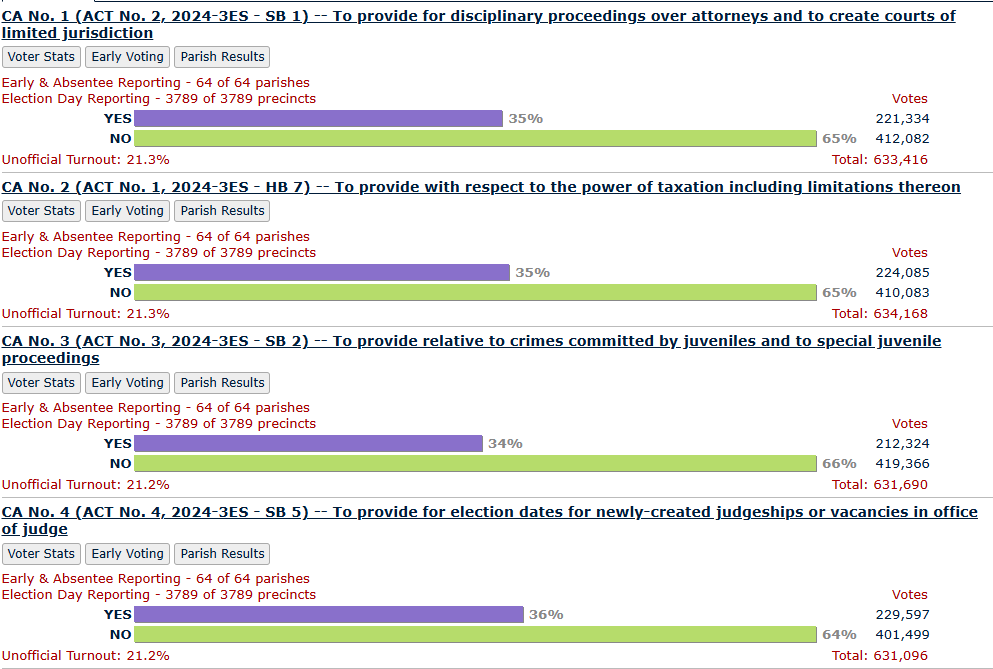
In East Baton Rouge Parish, voters overwhelmingly opposed all four amendments. With nearly complete returns (331 of 331 precincts reporting), the margins were stark:
- Amendment 1: Rejected by 75% (56,742 NO votes) to 25% (18,840 YES votes).
- Amendment 2: Rejected by 74% (56,085 NO votes) to 26% (19,619 YES votes).
- Amendment 3: Rejected by 75% (56,448 NO votes) to 25% (19,023 YES votes).
- Amendment 4: Rejected by 71% (53,832 NO votes) to 29% (21,646 YES votes).
Amendment 1: Promoted as a judicial reform measure to create specialized courts and clarify oversight over out-of-state attorneys, critics highlighted how this vaguely worded amendment risked increasing judicial bureaucracy without clear public benefit. Rather than enhancing oversight, it could have further concentrated power among a small group of judicial and political insiders. Voters were unconvinced, decisively rejecting the amendment as unnecessary and potentially harmful.
Amendment 2: Governor Landry and his allies presented this amendment as essential tax reform promising economic growth, yet it primarily benefited large corporations and wealthy individuals by shifting more tax burdens onto lower- and middle-income families. This amendment also threatened protected public education trust funds, jeopardizing teacher pay raises and public services under the guise of fiscal responsibility. Louisiana voters, recognizing the inequities embedded in this proposal, delivered a strong message against regressive economic policies.
Amendment 3: This proposal, strongly backed by far-right Republicans, sought to expand the prosecution of juveniles as adults, undermining decades of research demonstrating that harsher penalties for youth offenders do not effectively reduce crime. Critics, including juvenile justice advocates and educators, argued that this amendment would exacerbate problems in a state already burdened by mass incarceration and systemic inequities. Louisiana voters decisively rejected this punitive approach, signaling support for rehabilitation over punishment for young people.
Amendment 4: Ostensibly a cost-saving measure for judicial elections, critics saw this amendment as yet another unnecessary structural change that would have allowed politicians greater influence over judicial appointments and election timing. By embedding these procedural matters into the state constitution, the proposal risked politicizing judicial vacancies and undermining judicial independence. Voters rejected the measure, preferring transparency and legislative accountability over constitutional rigidity.
Despite the positive news of voters rejecting these troubling amendments, Louisiana again saw another dismal voter turnout of just 21.3%. This consistently low voter engagement raises concerns about democratic health and representation in the state. While the rejection of these amendments is encouraging, it underscores the urgent need for more robust voter mobilization efforts to ensure broader, more inclusive participation in future elections.
Overall, the comprehensive defeat of these amendments reflects a broader resistance among Louisiana voters against political manipulation and policy-making driven by corporate and right-wing interests. The message from this election is clear: Louisianans demand transparency, inclusivity, and accountability in governance—not ideological experiments or hidden agendas. It is now incumbent upon Governor Landry and state lawmakers to move forward with policies that truly reflect the needs and priorities of all Louisianans, not just privileged interests.






